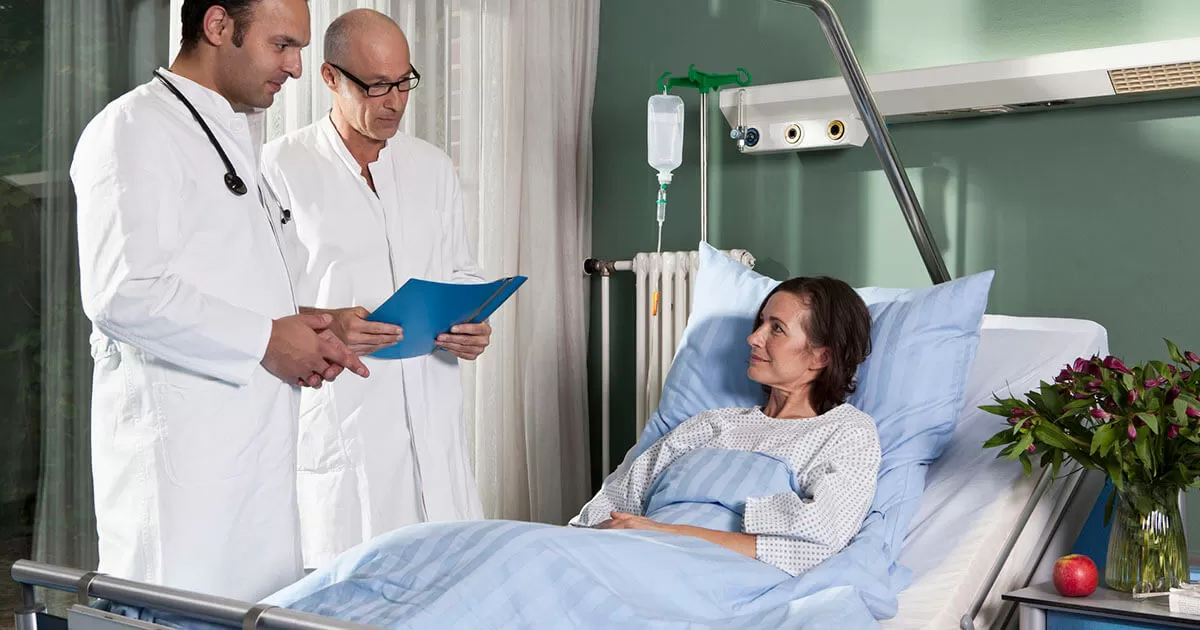What Is Bacterial Meningitis?

Even though they’re rare, outbreaks of bacterial meningitis often make the news, which can lead to people having questions about the disease, including what it is, how it is treated and spread, and how it can be prevented. Here are some basic facts about bacterial meningitis.
What is bacterial meningitis?
Bacterial meningitis is an uncommon but very serious infection of the membranes that surround the brain or spinal cord. These membranes are called the meninges.
Bacterial meningitis can be caused by several different types of bacteria. It can lead to permanent disabilities or death and requires immediate medical attention. There are vaccines to help prevent most types of bacterial meningitis.
How does someone get exposed to the bacteria that cause bacterial meningitis?
The types of bacteria that cause bacterial meningitis are very common in the environment. In fact, they can live in or on your body without making you sick—though you can still spread the bacteria to other people.
People who are at increased risk of exposure to the bacteria include:
- People in community settings where large groups gather together, such as college campuses.
- People with certain medical conditions or those who have had certain types of surgery.
- People who travel to certain parts of the world such as sub-Saharan Africa.
- Laboratory workers who work with the bacteria.
The reason that the bacteria may cause meningitis in some people is often unknown, though a head injury or a weakened immune system may play a role.
How does bacterial meningitis spread?
There are a number of ways bacterial meningitis can be spread by a person who is carrying the bacteria to others, and often depends on the type of bacteria. These include:
- During labor and birth, when a mother can spread the bacteria to her baby.
- Coughing and sneezing when a person is in close physical contact with others.
- Having close physical contact such as coughing or kissing, or long-term contact such as living in the same household.
What are the signs and symptoms of bacterial meningitis?
Bacterial meningitis can progress rapidly, and early symptoms are difficult to distinguish from other more common infections—with flu-like symptoms such as headache, nausea, a stiff neck, and vomiting. These symptoms usually start after a person has a respiratory illness or sore throat. The disease can become serious within 24 hours in adults and in even less time in children.
Other symptoms among older children and adults can include chills, weakness, sweating, loss of appetite, and sensitivity to bright light. As the disease progresses, a person can become confused and drowsy and can go into a coma. Later symptoms can include a build-up of fluid in the brain, partial paralysis, and loss of hearing.
Symptoms in children between 3 months and 2 years of age include fever, not eating, throwing up, irritability, and convulsions. In some cases, the child’s head may become enlarged.
If you think you or someone you know has the signs or symptoms of bacterial meningitis, it’s important to see a healthcare provider right away.
How is bacterial meningitis treated?
Because the disease advances very quickly, it’s important to get treatment for bacterial meningitis as soon as possible. Bacterial meningitis is treated with antibiotics. In some patients, additional treatment may be given to reduce the inflammation in the brain. People with bacterial meningitis who have loss of appetite, sweating, vomiting, and diarrhea may also be given additional fluids to replace the fluids that have been lost.
Can people be treated successfully for bacterial meningitis?
Most people who receive proper treatment recover. However, some people may develop permanent disabilities such as hearing loss, learning disabilities, or brain damage.
Can bacterial meningitis be prevented?
There are vaccines that help protect against several types of bacteria that can cause meningitis. One of those bacteria can cause a type of meningitis called meningococcal disease. There are five serogroups of the bacteria that cause most disease worldwide, and two separate vaccines in the US that help protect against the different groups. That’s why it’s important that you and your children follow the vaccination schedule your healthcare provider recommends.
In addition to getting vaccinated, healthy habits can also help with prevention. Here are some things you and your children can do:
- Wash hands thoroughly and frequently.
- Don’t share food, drinks, or eating utensils with other people.
- Don’t smoke and avoid secondhand smoke.
- Get plenty of rest.
- Avoid contact with people who are sick.
References
- 1. KidsHealth.org for Teens. Meningitis. Accessed September 21, 2018.
- 2. Centers for Disease Control and Prevention. Bacterial Meningitis. Accessed September 20, 2018.
- 3. National Organization for Rare Disorders. Meningitis, Bacterial. Accessed September 20, 2018.
- 4. Centers for Disease Control and Prevention. Meningococcal Vaccines for Preteens, Teens. Accessed September 20, 2018.
- 5. Cleveland Clinic. Bacterial Meningitis. Accessed September 20, 2018.
- 6. Centers for Disease Control and Prevention. Bacterial Meningitis: Management and Treatment. Accessed September 20, 2018.
- 7. KidsHealth. Meningitis. Accessed September 20, 2018.





